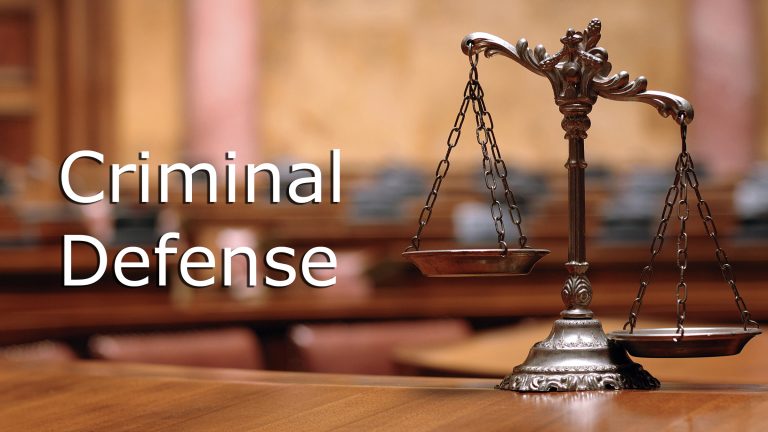Pre-Trial Strategies for Defending Criminal Cases

Importance of Pre-Trial Preparation
The pre-trial phase of a criminal case is critical as it sets the stage for subsequent proceedings. It involves gathering evidence, evaluating the prosecution’s case, identifying legal issues, and formulating a defense strategy. Key aspects of pre-trial preparation include:
- Case Assessment: The defense attorney reviews all available information, including police reports, witness statements, and forensic evidence. This assessment helps in understanding the strengths and weaknesses of the prosecution’s case.
- Legal Research: Conducting comprehensive legal research is vital to identify applicable laws, precedents, and potential defenses relevant to the case. This research forms the basis for crafting legal arguments during pre-trial motions.
- Witness Interviews: Interviewing witnesses allows the defense to gather additional information, assess credibility, and uncover facts that may support the defense theory.
- Evidence Collection: Identifying and obtaining relevant evidence (both favorable and unfavorable) is crucial. This may involve forensic analysis, expert opinions, or surveillance footage.
Pre-Trial Strategies
1. Investigating the Facts
Thorough fact investigation is fundamental. Defense attorneys work to uncover details that may challenge the prosecution’s narrative or reveal mitigating circumstances. This can include revisiting the crime scene, tracking alibis, and uncovering potential witnesses who can provide crucial information.
2. Legal Motion Practice
Defense attorneys use pre-trial motions strategically to challenge the prosecution’s case or seek favorable rulings. Common motions include:
- Motion to Suppress Evidence: This challenges the legality of evidence obtained by law enforcement, such as through unlawful searches or seizures.
- Motion to Dismiss: Grounds for dismissal could include lack of probable cause or failure to state a valid legal claim.
- Motion for Discovery: Requesting access to the prosecution’s evidence to prepare the defense.
- Motion in Limine: Seeks to exclude prejudicial evidence or testimony from trial.
3. Negotiating Plea Bargains
Defense attorneys often engage in negotiations with the prosecution to secure a favorable plea deal for the client. This could involve reducing charges, recommending a lighter sentence, or agreeing to diversion programs for certain offenses.
4. Expert Consultation
Engaging expert witnesses such as forensic analysts, psychologists, or medical professionals can provide valuable insights and strengthen the defense’s case. Experts can testify on technical matters or provide opinions that support the defense theory.
5. Witness Preparation
Preparing defense witnesses for trial is crucial to ensure they provide clear and credible testimony. This involves reviewing key points, practicing direct and cross-examination techniques, and addressing potential challenges.
6. Developing Trial Strategy
Based on the evidence and legal arguments, defense attorneys craft a comprehensive trial strategy. This includes deciding on the presentation of evidence, witness examination, and anticipating the prosecution’s tactics.
7. Client Counseling
criminal lawyer gwinnett county play a critical role in advising clients on the legal process, potential outcomes, and the implications of various decisions. Building trust and maintaining open communication with the client is essential throughout the pre-trial phase.
8. Case Theory Development
Formulating a persuasive case theory is essential. This involves crafting a narrative that explains the defense’s version of events and highlights inconsistencies or weaknesses in the prosecution’s case.
Advanced Pre-Trial Strategies for Defending Criminal Cases
Continuing from the foundational aspects of pre-trial preparation and strategies discussed earlier, defense attorneys employ advanced tactics and nuanced approaches to navigate complex criminal cases effectively. This article delves deeper into the intricacies of pre-trial defense strategies, emphasizing critical considerations and advanced techniques that attorneys utilize to bolster their clients’ defense.
1. Advanced Evidence Analysis
In criminal cases, a meticulous examination of evidence can often reveal critical details that strengthen the defense. Advanced evidence analysis may involve:
- Forensic Analysis: Engaging forensic experts to scrutinize physical evidence, DNA samples, or digital records. Forensic analysis can uncover inconsistencies or alternative explanations that challenge the prosecution’s narrative.
- Digital Forensics: In cases involving digital evidence (such as cybercrimes), specialized experts can analyze electronic devices to uncover exculpatory evidence or expose flaws in the prosecution’s digital evidence.
- Timeline Reconstruction: Developing a detailed timeline of events based on available evidence to identify discrepancies or gaps that can be exploited in the defense strategy.
2. Psycho-Social Assessments
Understanding the psychological and social factors surrounding a case can be instrumental in shaping the defense strategy. Advanced pre-trial strategies may involve:
- Behavioral Analysis: Consulting with psychologists or behavioral analysts to assess the mental state of the accused or key witnesses. This analysis can inform defense theories and challenge prosecution narratives.
- Social Contextualization: Exploring social dynamics or environmental factors that may have influenced the events leading to the alleged crime. This can include issues related to mental health, addiction, or trauma.
3. Mitigation Planning
For cases involving serious charges, mitigation planning focuses on minimizing potential penalties or negative outcomes for the accused. Advanced strategies include:
- Developing Mitigation Packages: Compiling comprehensive reports that highlight mitigating factors such as the accused’s background, character references, or rehabilitative efforts. These packages aim to humanize the accused and persuade the court to consider leniency in sentencing.
- Collaborating with Mitigation Specialists: Working with specialists who specialize in sentencing advocacy or mitigation strategies. These experts provide insights into effective strategies to influence sentencing decisions.
4. Expert Witness Strategies
Engaging expert witnesses strategically can be pivotal in complex criminal cases. Advanced approaches include:
- Qualifying Expert Witnesses: Conducting thorough vetting of potential expert witnesses to ensure credibility and effectiveness in supporting the defense theory.
- Presenting Complex Concepts: Utilizing expert testimony to simplify complex scientific or technical concepts for the jury, enhancing the persuasiveness of the defense arguments.
5. Trial Simulation and Strategy Sessions
Conducting mock trials or trial simulations can refine trial strategies and identify potential weaknesses. Advanced trial preparation involves:
- Mock Jury Analysis: Simulating jury deliberations to anticipate reactions to evidence and arguments. This helps in refining trial strategies and adapting approaches based on perceived juror perceptions.
- Scenario Planning: Strategizing for various trial scenarios, including cross-examinations, witness confrontations, and evidence presentations. This proactive approach enhances trial preparedness and adaptability.
Challenges and Considerations
While implementing pre-trial strategies, defense attorneys must navigate several challenges and considerations:
- Legal Complexity: Criminal law is intricate, and defense attorneys must have a strong grasp of procedural rules, evidentiary standards, and constitutional principles.
- Resource Limitations: Access to resources such as expert witnesses or investigative services can impact the effectiveness of pre-trial preparation.
- Time Constraints: Pre-trial preparation often operates within strict timelines, requiring efficient management of tasks and priorities.
- Ethical Responsibilities: Defense attorneys must uphold ethical standards, including maintaining client confidentiality and ensuring fair treatment under the law.
Conclusion
Effective pre-trial strategies are essential for mounting a successful defense in criminal cases. By conducting thorough investigations, leveraging legal motions, engaging in negotiations, and preparing witnesses,Gwinnett County family lawyercan lay the groundwork for a robust defense strategy. The ultimate goal is to protect the rights and interests of the accused and secure the best possible outcome in the criminal justice system.



